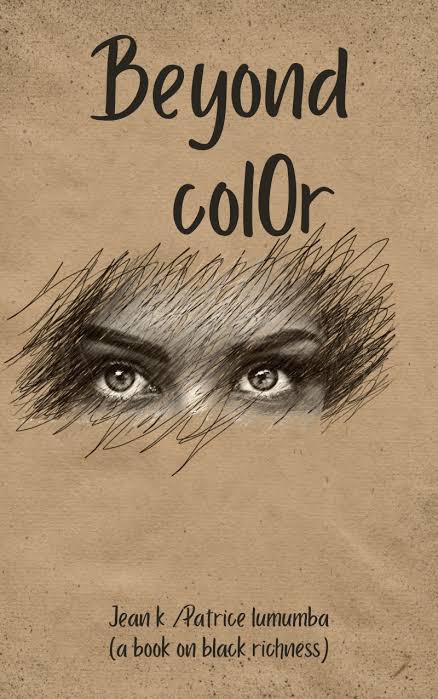

A REVIEW FOR THE BOOK BEYOND COLOR BY JEAN K
NNOLI SYLVESTER CHIKELUE@sylvesternnoli140312
1 year ago
There is a big dislocation in the system, especially black nations, no doubt. This comes up as a result of the disconnection of the people from their history. The knowledge of the past opens the door to the future and gives value to the present. Jean K with his Beyond color took the audients on a soul journey, having seen how awful it has become already and the unfavorable impacts which the negligence of the history has thrown on the people in recent times. Africa, the mother of all black nations is craving to reconnect with her own. A call for a black history is a call for liberation and Jean K brought this to life with his systematic approach of narrating the revelation he had. Beyond color is pack-filled with the messages of hope, inspiration, liberation and a great urge for courage. The book captured a story incline to the period of five great ancient civilizations, to the fall of Africa. At every stage of these histories, great men were born, raised and eventually, they soared like the eagle, each at their own time and space.
Life is like a moving train and in each stage of it, change comes to play. Jean K so much utilized his ink by digging out great figures and kingdoms that have existed at some point in the period of five great ancient civilizations. He succeeded in using this tale to shoot a direct arrow in to the hearts of many, making them see good reasons why they should consider always recognizing the contributions of the past heroes and kingdoms. The book shoots an arrow with the message of promoting critical thinking, encourages better citizenship, confronting racism and discrimination, even inspiring generations of activists and these are some of the major reasons why I became so fond of the book from the first day I walked through it.
The book, Beyond color reinstated the generational quote, Africa is the cradle of civilization. Dating as far back as 3000BC during the reign of King Namer, the ancient Egypt has been practicing a centralized system of government. He narrated how he saw 30 dynasties of Pharaoh when they moved from the time of unification to 330BC. He further made revelation, sighting that as at 7000 BC, the people of Egypt has started utilizing the gift of Nile by building an irrigation canal which favored agriculture, making them cultivating all year round. This boost of abundant agricultural produce gave the ancient people of Egypt a great kick to other positive dimensions. For instance, under the control of Pharaoh who is at the helm of the activities in the kingdom and the collaboration with the religious leaders and Noble scribed, they harnessed the mineral resources in the near east. They also engaged in collective construction and trade and at a point, they realized they needed a more superior communication with each other from different locations, so they developed a system of communicating each other using number system to record information.
Following the book through the lines, one can spot how the writer narrates with pack-filled lessons of strength in each of the stages in the history of these great kingdoms and figures, their mistakes and disappointments which led many to fall during this era in the ancient kingdoms. Some of these heroes embodied in a king stood stall like a tree, protecting their kingdoms but the winds of time would always blow off the weary bones. The death of the Egyptian king in 1213 eventually made the people to lose sufficient power. With this power vacuum, the Libyans sized the power and ruled the kingdom for over 200 years.
Moving further in that soul journey of his, the writer spotlighted the ancient kingdom of Kush whose location was along Sudanese and southern Egyptian border and how they controlled the trade until 663BC when they were driven out by the Assyrians who had more sophisticated weapons of iron spear and sword.
The kingdom of Mali was the next in line, founded by Sundiata Kaita. The kingdom was totally secured and it lacked oppression as their king frowned at such. Most of the inhabitants were in to agriculture. Nevertheless, Mali saw a decline during the reign of Mansa Musa from 1312 – 1337 due to his extravagant nature. And as at1359, civil war tore the kingdom apart; paving way for the people of Songhai who rose in another 100years and gained power.
The stages seem endless because as long as time ticks, there would always be history to tell, Histories with golden messages to the minds. My only little regret is seeing this bunch of knowledge being narrated as a trance, though the messages are crystal clear, giving a fascinating insight and a whole lot to learn from the book. Beyond color reminds the people to dig deeper and think bigger. It will unite the people because the lens through which we see the world shapes our reality and the only way to see past it is through sharing our experiences.
The book brought to spotlight, enormous sacrifices and contributions of the ancestors, promotes critical thinking; it will aid in confronting racism and discrimination and above all, inspire generations of activists who would now see these great legends as their role models, making them to become better citizens. No doubt, there is no greater force that a people steeped in their history. Knowing the past, opens the door to the future. And that’s why the book, Beyond color would actually be a vehicle for transformation and for me, between 1to 5, I’m rating the book 4.
Book Reviewer: SYLVESTER CHIKELUE NNOLI
#Motivation
#Hellonircle
#Readmynircleblog
#ArtofArtist
#Leaening
#Followme
#Neighbors
#poadcast
#NircleCommunity
#NircleForums
#Africa

